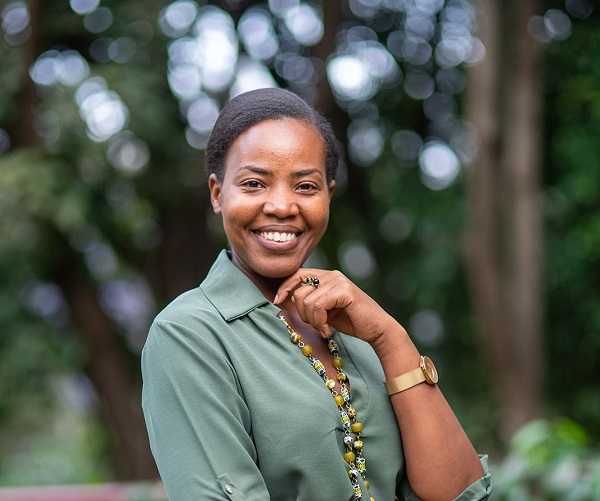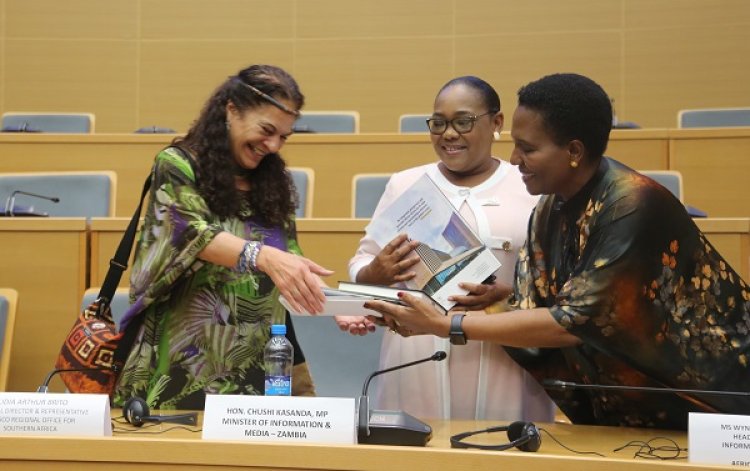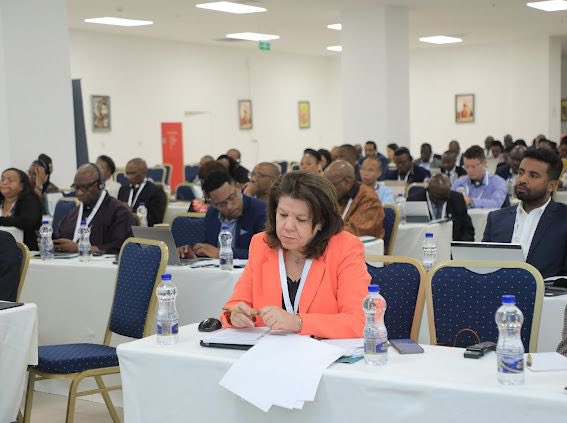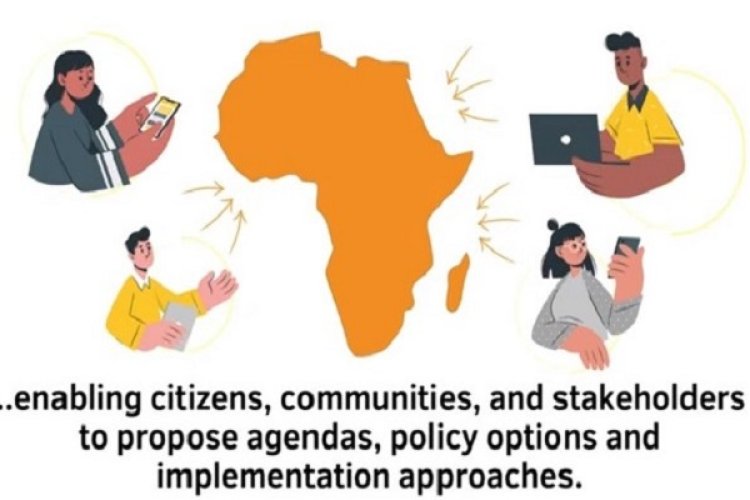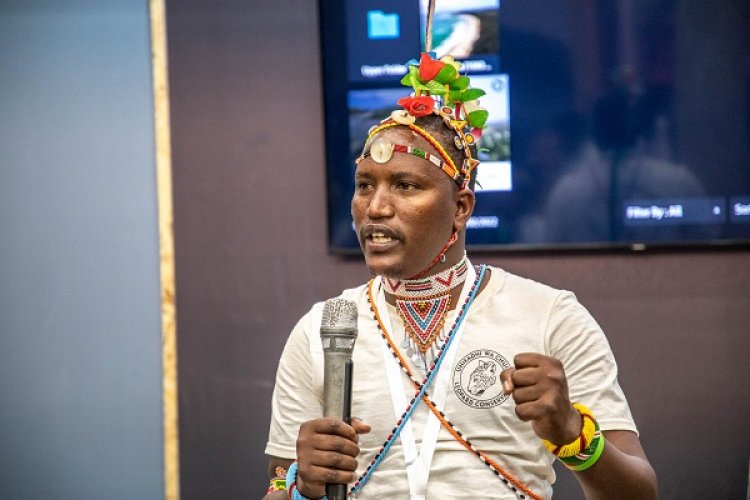Africa has proven resilience in confronting infectious diseases such as the COVID-19 pandemic and other epidemics, but the fight doesn’t appear to ease yet in light of significant internal and external challenges threatening to reverse registered progress, if unchecked.
While, for instance, the burden of infectious diseases may have gone down across parts of Africa, they remain among the three leading causes of death on the continent. In 2019, more than 600,000 deaths arising from respiratory diseases excluding tuberculosis (TB) were recorded.
The estimated risk of diseases spreading from animals to humans or vice versa — popularly known as zoonotic diseases — was at 63% in 2022, according to World Health Organization (WHO).
Internal problems such as conflict, food insecurity, urban population overcrowding, climate change and inadequate healthcare infrastructures among others, which are often interconnected, exacerbate the risk of disease outbreaks.
Tackling the emergence of new pathogens and the persistence of existing ones driven by each of the above factors or a combination of them has become more pressing than ever, and external issues manifested in economic volatility, geopolitics, and brain drain make the fight even difficult.
Overall, these factors give a rise to infectious diseases’ epidemics which pose a significant challenge not only to public health but also to economic and social development.
Plugging loopholes
It is, therefore, crucial for African governments to embark on a multifaceted approach. A critical component in mitigating this complex matter involves elevating disease surveillance for early detection, and rapid response mechanisms.
While there exist systems such as the Integrated Diseases Surveillance and Response (IDSR) to secure national public health surveillance, loopholes are common in many countries due inadequate health surveillance capacities, for example at the points of entry, particularly ground crossings.
Illegal movement through porous borders complicates situations, whereas surrounding communities may have stronger ties beyond the usual trade.
Also read: Key things you need to know to prevent diseases jumping from animals to people
This necessitates substantial investments encompassing the enhancement of health diplomacy calling for close collaboration between African nations and stakeholders, robust data sharing, comprehensive risk assessments, and strengthening infrastructure.
These measures are imperative for the expedient identification and containment of outbreaks, ultimately enhancing health security across the continent. There is also need to explore innovative financing mechanisms to improve regional and domestic initiatives.
On one hand, it is noteworthy to have the African Union’s African Medicines Agency (AMA), a milestone towards enhancing regulatory capacity for pharmaceuticals, ensuring the availability of safe and effective medicines, and fostering investments in locally pertinent healthcare solutions.
On the other hand, strengthening the health system remains central to Africa’s strategy, involving an array of initiatives ranging from the training and deployment of a competent healthcare workforce to the improvement of healthcare delivery and the maintenance of a consistent supply of essential medicines and supplies.
These collective measures are feasible with strategic actions to reinforce healthcare systems, enhance disease prevention, detection, and response capabilities on the African continent.
It is crucial for African governments to embark on a multifaceted approach. A critical component in mitigating this complex matter involves elevating disease surveillance for early detection, and rapid response mechanisms.
Charting new course
Africa has made remarkable strides in various sectors, but the constant threat of infectious disease outbreaks, epidemics and pandemics threatens to derail these achievements. As we navigate the era of emerging pathogens and global health threats, it is essential to evaluate the substantial progress Africa has achieved in combating infectious diseases and chart a course that will safeguard the continent’s gains.
A number of initiatives have so far bolstered Africa’s ongoing fight against Infectious Diseases, and they call for attention and prioritization by national authorities going forward if we are to ensure a healthier population:
● The African Union Roadmap on Shared Responsibility and Global Solidarity for AIDS, TB, and Malaria Response in Africa: Under this roadmap, African countries are encouraged to, among other things, boost domestic funding for HIV programs, and it promotes stronger collaboration between states and regional organizations to address the HIV/AIDS epidemic across the continent.
● The Malaria Vaccine Implementation Programme (MVIP): The initiative is at the piloting stage to use the malaria vaccine known as RTS, S/AS01 in Africa, representing a breakthrough in malaria prevention. While the vaccine’s effectiveness is under assessment, its deployment has the potential to further reduce malaria cases and save lives, particularly among children in malaria-endemic regions.
● The African TB Caucus: The network comprises African parliamentarians and policymakers and advocates for increased political attention and funding for TB in Africa. This advocacy has resulted in improved legislative and policy support for TB control efforts, leading to stronger healthcare systems and better TB outcomes.
● The African Regional Certification Commission for Polio Eradication (ARCC): ARCC plays a crucial role in verifying and certifying African countries as polio-free. Its rigorous assessment process ensures that countries maintain the highest standards of polio surveillance and immunization coverage. This effort has contributed to the ongoing decline of polio on the continent and provides assurance of progress toward eradication.
Also read: CPHIA: Fresh calls for Govts to tackle the ‘poor cousin’ in pandemic planning
● Reaching Every District (RED) Approach: Endorsed by WHO, it is implemented in many African countries, emphasizes reaching every community with vaccination services. It has improved the accessibility of vaccines, especially in hard-to-reach areas, leading to higher immunization coverage rates and reducing disparities in vaccine uptake.
● The African Vaccine Regulatory Forum (AVAREF): Established in 2006, AVAREF focuses on strengthening vaccine regulatory systems across Africa. By ensuring the safety and efficacy of vaccines, AVAREF has paved the way for increased immunization coverage, bolstering Africa’s defenses against preventable diseases.
● The Africa Health Agenda International Conference (AHAIC): This is a platform for policymakers, healthcare professionals, and stakeholders creating a space to discuss and strategize on health issues in Africa, including pandemic preparedness. It has facilitated knowledge sharing, innovative solutions, and partnerships that have strengthened healthcare systems and improved the continent’s readiness for health emergencies.
Dr. Thérèse Umuhoza is Independent Research Epidemiologist and 2021 Mawazo Fellow

